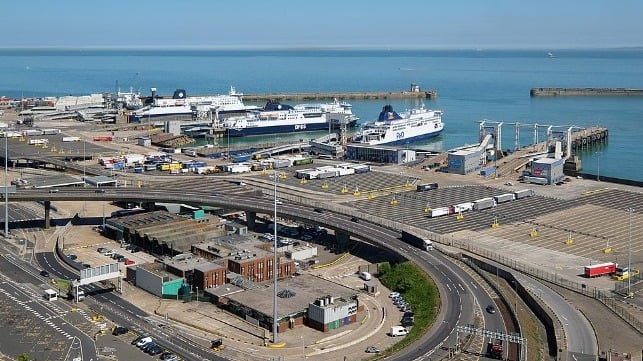Warnings of Post-Brexit Disruptions at UK Ports Due to Lack of Systems

As the United Kingdom rushes towards its December 31 end of the Brexit transition period, there is growing concern among industry, ports and the shipping sectors of significant barriers as the EU and UK struggle with new customs routines and systems. While government officials insist they are prepared with contingencies, a new report from the UK National Audit Office (NAO) is contributing to the concerns over gaps in preparedness and potential ramifications.
The NAO report, which is the fourth they have issued since 2016, sets out the background and challenges and looks at the progress with implementing arrangements. It also highlights concerns and points to the unresolved issues of the Northern Ireland Protocol. Recognizing the government departments have built on their no-deal planning, the audit highlights “progress in recent months implementing the changes required to systems, infrastructure and resources. However, significant risk remains,” it concludes.
“It is very unlikely that all traders, industry and third parties will be ready for the end of the transition period, particularly if the EU implements its stated intention of introducing full controls at its border,” the audit finds. They also point to the potential for increased risks of smuggling or other criminal behavior which could exploit gaps or inconsistencies in border operations.
One of the key elements for the new customs regime is a new IT system, the Customs Declaration Service, designed to handle the processing and replacing older systems. There are numerous complaints, including that the system is cumbersome and requires far more time to complete a declaration. The IT system is reportedly incomplete and testing and training have not been implemented.
The government announced in October that it had entered into contingency contracts with major ro-ro shippers to ensure that it would have the vessels and volume ready to maintain cross-channel trade. However, there are predictions of delays and dire consequences at the customs checkpoints if the IT systems are not ready and able to handle the volumes.
VesselsValue in analyzing the impact on the ro-ro market and the outlook for the vessels concludes, “Delays are inevitable as the UK switches over to the UK Global Tariff (UKGT) on the 1st of January 2021, adding administrative red tape, time and extra cost. Road, rail, terminal, and berthing congestion are likely. The big unknown, to what extent and how long will it last?”

that matters most
Get the latest maritime news delivered to your inbox daily.
The NAO in its report agrees that there remain significant uncertainty about whether preparations will be complete in time, and the impact if they are not. These issues are becoming hotly debated issues in the UK as the December 31 deadline looms.
Some of this uncertainty could have been avoided and better preparations made, the NAO says in its report, had the government addressed sooner issues such as expanding the customs intermediary market, developing a solution for roll-on, roll-off (RORO) traffic, upscaling customs systems and determining the requirements for infrastructure to enforce a new compliance regime.
